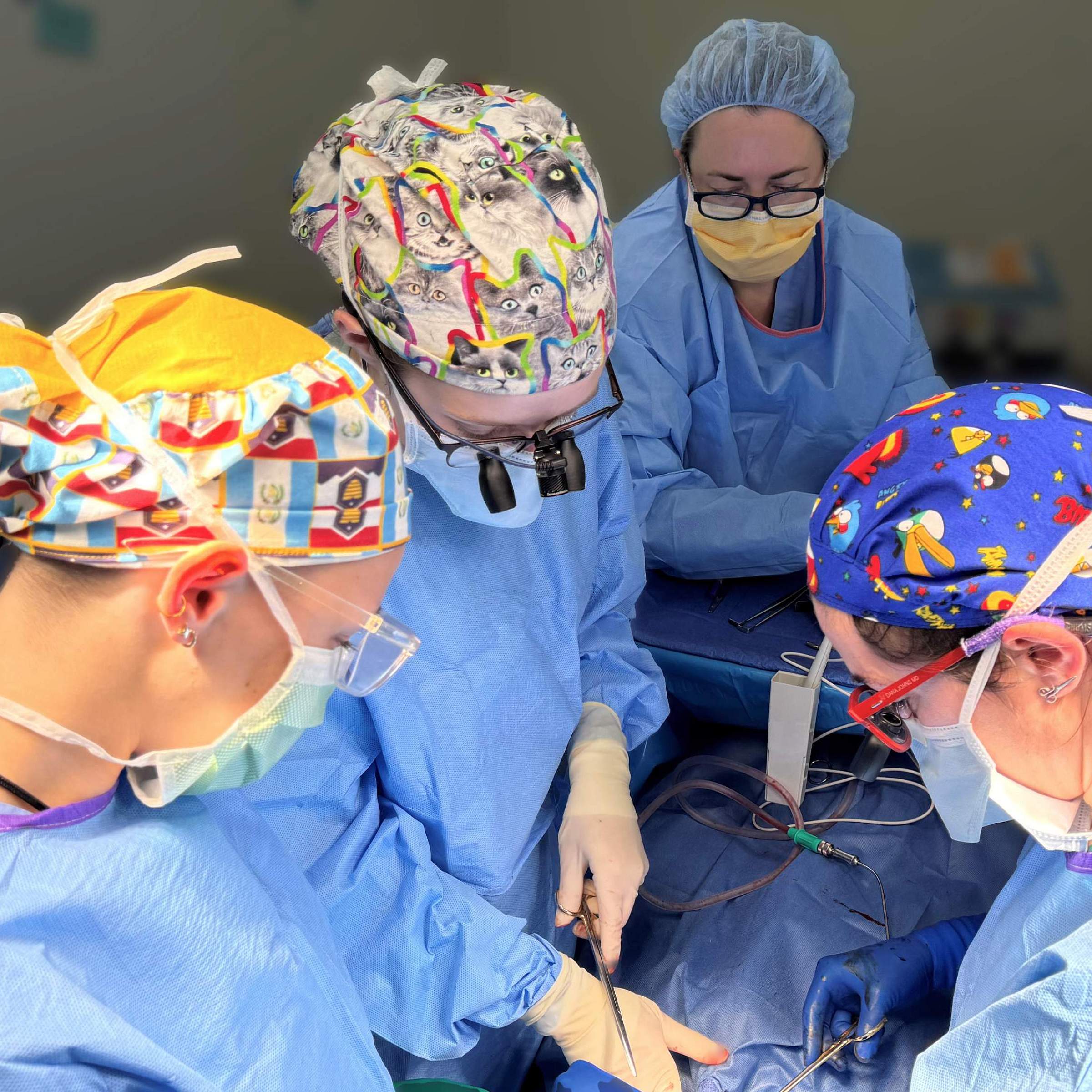
Craniofacial Fellowship
About the Plastic Surgery Craniofacial Fellowship
The University of Utah Plastic Surgery Craniofacial Fellowship is large-volume training program designed for graduates of ACGME certified plastic surgery residencies who wish to gain additional experience in the diagnosis and surgical management of craniofacial anomalies. The program provides one of the most extensive experiences in United States in craniosynostosis and cleft care. For example, over the last two decades, close to a thousands patients with craniosynostosis have been treated with the endoscopic assisted craniectomy, with excellent results.
In addition, the surgeons in the craniofacial program have incorporated and further developed innovative techniques for facial skeleton distraction and cranial vault distraction. These techniques have proven to be extremely beneficial in the management of patients with complex maxillofacial malformations and single or multiple suture craniosynostosis.
Furthermore, our institution’s approach to cleft lip and palate care has been continuously modified in an attempt to improve outcomes in the management of this difficult patient population. This led to an approach that is safe, efficient, and reproducible, with potential improvement in outcomes compared to traditional protocols.
CLINICAL RESPONSIBILITIES
Clinical activity is on a supervised basis. Fellows will obtain a full Utah state license and will have faculty privileges at both University of Utah and Primary Children’s hospitals. This large-volume craniofacial fellowship is based on a clinical referral base from five states. This fellowship is a GME approved program. The fellowship educational experience is intrinsically linked to Primary Children’s Hospital, an interdisciplinary team with coordinated clinical and academic activities. The fellowship is designed to provide a broad and highly specialized experience in all facets of craniofacial and pediatric plastic surgery. The fellowship will offer comprehensive training with a large clinical volume and research opportunities.
Fellows spend approximately one day in clinic and four days in the OR each week.
Facial trauma experience is gained at not only Primary Children’s Hospital but also at the University of Utah, a level-one trauma center, in Salt Lake City, Utah. Graduates of the program will have been exposed to diagnosing and peri-operative care of a large clinical volume of both pediatric and adult congenital and acquired craniomaxillofacial abnormalities. The goal of the program is to train individuals to be competent in all aspects of surgery of the craniofacial skeleton including: cleft lip and palate care and repair, pediatric craniofacial surgery, craniomaxillofacial trauma of all ages, pediatric plastic surgery, pediatric and adult acute trauma and secondary trauma reconstruction, facial reanimation procedures, craniofacial microsurgery, distraction osteogenesis, orthognathic surgery and clinical research.
As acting instructor at the University of Utah School of Medicine, the participant will be involved in the clinical supervision and teaching of medical students and plastic surgery residents.
RESEARCH RESPONSIBILITIES
The Division of Plastic Surgery Craniofacial team is actively involved in research. Fellows will be required to attend weekly didactic teaching conferences and will be involved in a research project which should result in publication or presentation. Active participation in ongoing clinical outcome studies and case series analysis is mandatory. Presentation of original clinical research at one national meeting is supported and expected.
APPLICATION & INTERVIEWS
Positions in this program are filled through the American Society of Craniofacial Surgeons (link to https://ascfs.org/about/Fellowships.cgi) and SF Match (link to https://sfmatch.org/) . Individuals applying for this program must have completed an ACGME accredited residency in and be either board certified or board eligible in plastic surgery and eligible to be licensed in the State of Utah.
International applicants would need to obtain an H1B visa.
Interviews are held during August and September for the following July start date. The program runs from July 1 to June 30.
GLOBAL MISSION
Global surgery is an integral component in the craniofacial program in the Division of Plastic Surgery at the University of Utah. A team of surgeons, anesthesiologists, and operating room staff travel to Guatemala for a one week mission to perform reconstructive surgeries on infants and children with cleft lip and palate anomalies, burns, and hand injuries. The fellow is encouraged to attend this mission trip with the craniofacial team.
In addition to clinical responsibilities, teaching and instruction of local medical students and plastic surgeons are goals we take very seriously. Moreover, plastic surgery residents and fellows often accompany the team, an experience that enhances their training in plastic surgery. Having the opportunity to help those who would otherwise not have reconstructive surgery, as well as educating local health care providers is immensely satisfying and rewarding.

CONNECT WITH US
Program Director
Program Coordinator
Kallie Handy
Email: kallie.handy@hsc.utah.edu